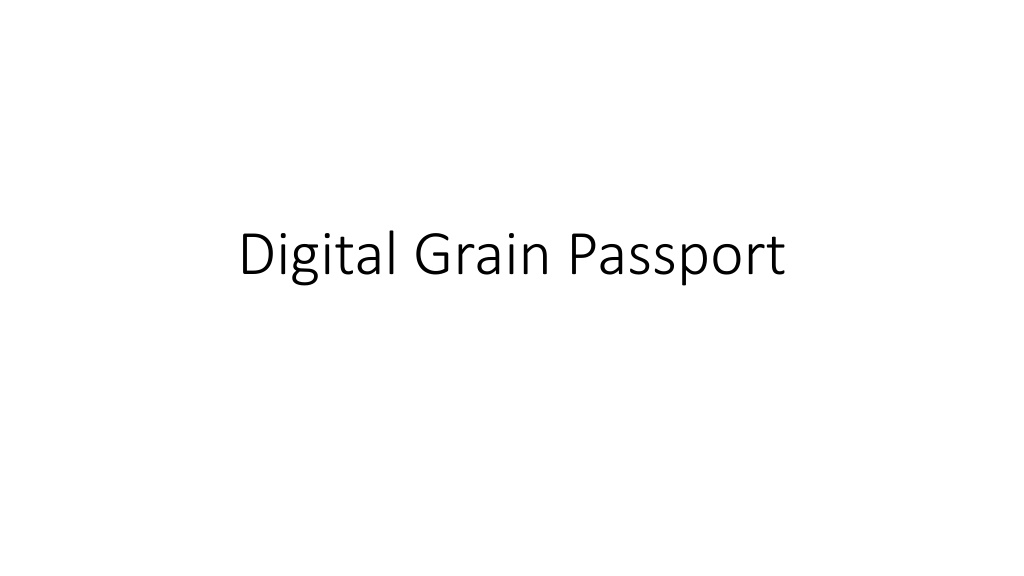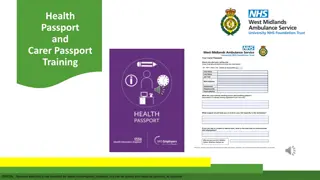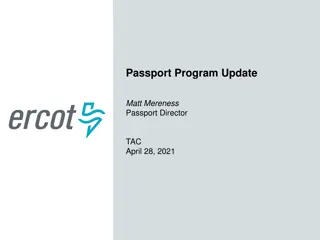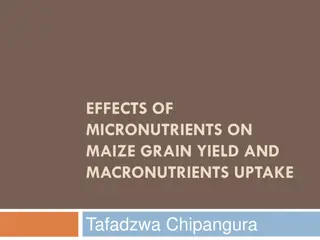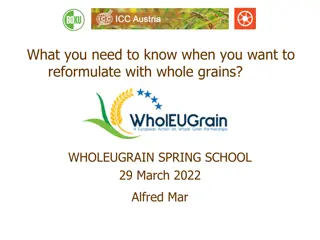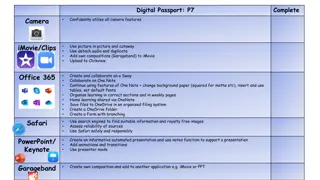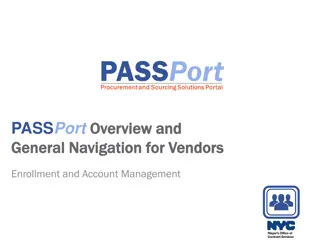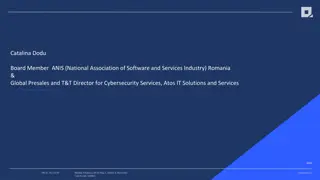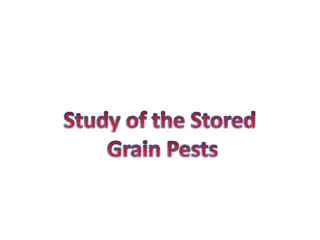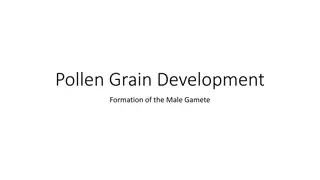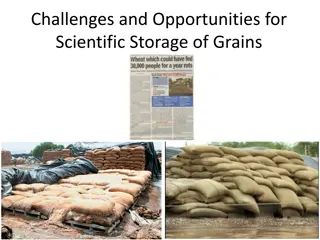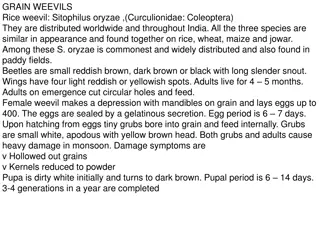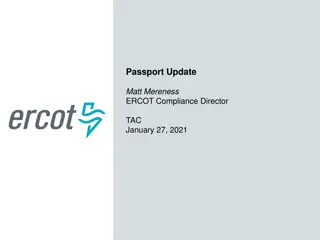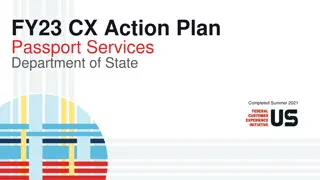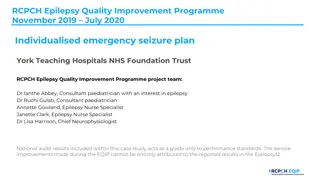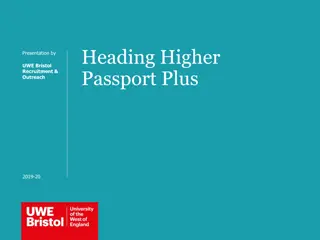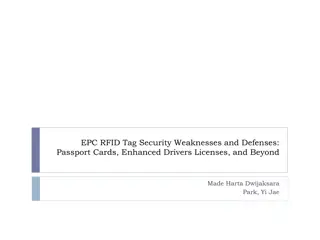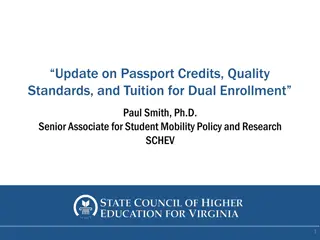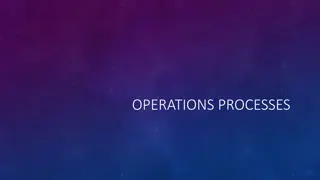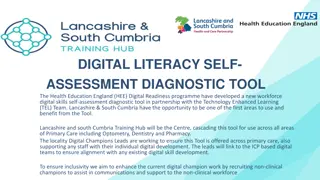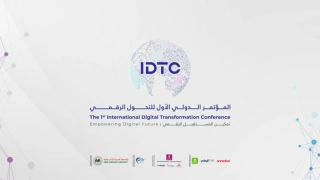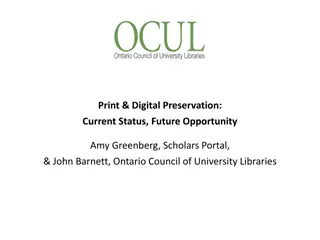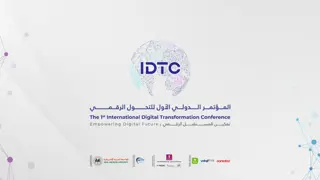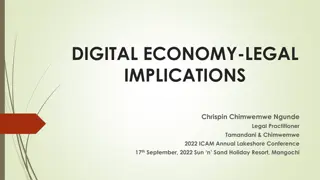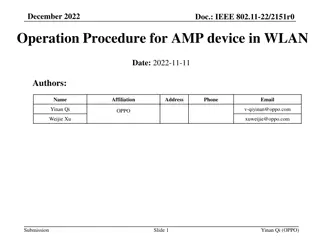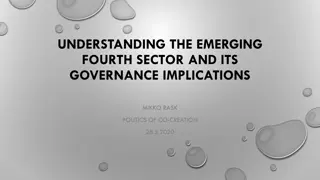Digital Grain Passport Initiative: Transforming UK C&O Sector
Industry leaders in the UK C&O sector are embarking on a digital transformation journey by introducing the Digital Grain Passport initiative. The project aims to replace traditional paper passports with a modern digital data platform, enhancing production standards and traceability. Key highlights include a feasibility study, pilot project, data governance framework, and system build procurement process. The industry's ambition is to phase out paper passports by 2025, with AHDB taking ownership and long-term funding responsibility. Collaboration with stakeholders and strong data governance will drive the success of this innovative initiative.
Download Presentation

Please find below an Image/Link to download the presentation.
The content on the website is provided AS IS for your information and personal use only. It may not be sold, licensed, or shared on other websites without obtaining consent from the author. Download presentation by click this link. If you encounter any issues during the download, it is possible that the publisher has removed the file from their server.
E N D
Presentation Transcript
Background Feasibility study and pilot project 2012 2017 Industry judged it was not the right time to adopt NFU, AIC, UKFM and others initiated new discussions in 2019 Since then, AHDB & industry gathered key information Objective now is to share it with industry and facilitate a decision
Vision: Ambition: UK C&O sector can boast a 21st century digital data platform demonstrating high production standards and world-leading traceability Paper passport phased out over 2022 2025 period
Ownership & funding model Industry preference is for AHDB ownership and funding long-term The Statutory Instrument governing AHDB permits this: Developing, reviewing or operating schemes for the certification of products or of operation connected with production or supply of products AHDB is funded by levy paid by growers, processors and merchants
Data governance Agrimetrics drafted framework, accepted by industry Key themes: Focus on digitising paper passport. Revisit data access/usage in future years Establish a Data Governance Board to oversee all data-related questions Legal input to create Ts & Cs to protect companies using the system
Data governance Framework: Legals, technical infrastructure, governance processes and commercial terms Data collection policies, code of practice, terms of use, privacy statement, permissions/controls Data governance and management policies, risk management and audit, security standards Data usage policies incl. data sharing/transfer agreements, access requests
System build AHDB procurement process 2021 winning bidder Audacia Have experience of development in grain industry ADM platform Contract will only be signed once industry decide to proceed If industry decide yes , work will commence late summer 2022 System testing and low-level usage spring 2023
Cost and benefits Total cost for first three years 1.64m* Quantifiable industry benefits: Time saving Fewer rejections Less printing, postage, storage etc 2.90 worth of benefit for every 1 spent *Does not include individual company implementation costs
Benefits industry-wide Two-way flow of information through supply chains Universal UK-wide system removing risk of proliferation of different systems Real-time automatic assurance status checks for farmers and hauliers Fewer intake delays no stickers, legibility/incomplete passport problems Greater visibility of parties involved in a load Greater visibility of load progress with statuses, e.g. collected , delivered
Benefits to each party farmers Digital return of weight and grain quality data Add grain details once and apply to many passports with batch functionality Centralised data for all grain movements regardless of who you sell to Merchants populate key farm data, e.g. business and collection site Visibility of load destination and haulier ahead of time Elimination of stickers and paperwork
Benefits to each party merchants Real-time automatic assurance checks when assigning farmer and haulier Fewer mistakes & issues to sort, e.g. incomplete passports or missing stickers Instant feedback of weight and quality data from processors Visibility of when a load has been collected and delivered in real time Systems integration means seamlessly sharing load info with others in supply chain
Benefits to each party processors Automatic assurance checks ahead of collection highlight issues before intake Traceability is improved where grain has come from, how treated and handled and who is involved Fewer mistakes & issues to sort, e.g. incomplete passports or missing stickers Visibility of the farmer & haulier before loads arrive Visible load statuses see when a load has been collected and is on its way Enhanced data integrity system records who entered which data and when Systems integration means seamlessly sharing load info with others in supply chain
Benefits to each party hauliers Fewer mistakes and tipping delays for illegible or incomplete passports Automatic grower assurance checks highlights issues before collection Digital return of weight data potentially speeds up admin and invoicing Passports tailored to each crop growers clear on what needs completing
Challenges System must cope with last-minute changes and unforeseen events All must be prepared to use digital technology Backup processes to ensure continuity and prevent hold-ups System must cope with a lack of signal at remote sites Systems integration will be key for large processors and merchants Transition period dual running paper and digital
Transition Once the system is operating, each supply chain will choose: When is right to start using digital passports How long to accommodate both digital and paper When to stop using paper passports A minimum period of two years available for transition Paper system will be phased out by mid-2025, tbc across industry
Decision-making process AHDB levy payer vote 11 April 2022 to 9 May 2022, and Informed industry decision from Cereals Liaison Group (CLG)
Cereals Liaison Group (CLG) Comprises trade associations across UK supply chains: Trade association Abbreviation Representing National Farmers' Union NFU English & Welsh growers National Farmers Union Scotland NFUS Scottish growers Ulster Farmers Union UFU Northern Irish growers Agricultural Industries Confederation AIC Merchants and feed processors UK Flour Millers UKFM Millers Maltsters Association of GB MAGB Maltsters Seed Crushers & Oil Processors Assoc SCOPA Oilseed crushers Breakfast Cereals UK BCUK Breakfast cereal processors British Oat & Barley Millers Assoc BOBMA Oat & barley millers Renewable Transport Fuels Assoc RTFA Biofuel processors Northern Ireland Grain Trade Assoc NIGTA Traders and processors in NI Road Haulage Assoc RHA Hauliers
More information AHDB webpage ahdb.org.uk/digital-grain-passport Resources available there: Documents What it means for farmers, hauliers, processors, merchants Videos explaining how it works and benefits Podcast Animation supporting AHDB Shape the Future vote Data governance framework summary FAQs Timeline
